Review of Warrior, The (2001)
Introduction
Not to be confused with Asif Kapadia’s celebrated Indian film of the same name (and, to add to the confusion, the same year), featuring a feudal setting and a rogue warrior being pursued by a relentless enemy in a barren, inhospitable setting. Whilst Kim Sung-su’s ‘The Warrior’ (aka ‘Musu’) does feature a feudal setting, a barren landscape, a stoic, noble warrior and his relentless foe, this is a Korean war drama, set just after the establishment of the Ming dynasty in 1375, as relations between Korea and China sit upon a knife-edge.
A group of Korean diplomatic emissaries, led by a young Colonel (Joo Jin-Mo) eager to prove himself to his bedraggled men, are sent on a peace-making mission. However, their Chinese overlords have scant patience for such frivolities, capturing the envoys and leading them to exile in the desert. Breaking the sun-baked tedium are those fun-loving village-ravagers the Mongols, who slaughter the Ming soldiers and allow the surviving Koreans to escape. So far, so convoluted. Enter a glacial young princess (played with stock trembling youthful passion by Zhang Ziyi) in need of rescue from a vicious band of roving Yuan Mongols led by a stoic general (played with winning insouciance by Yu Rong-kwong). After a series of furious trysts in various locations: an oasis, a forest and finally an extended siege at a crumbling shore-line battlement, the fates of the characters and their ubiquitous thematic honour is decided.
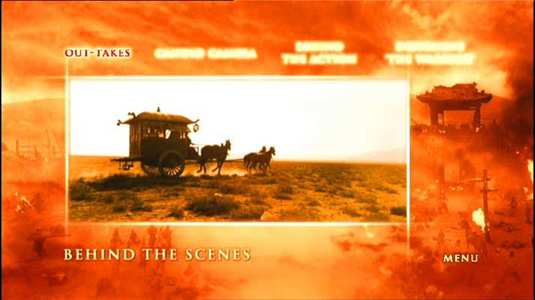
Video
An excellent transfer, in the bizarre ratio of 21:9 that is flawless but a for a curious alignment problem where half the screen appears to be merely a pixel shift away from the other... or then I could simply be going completely insane. Muted colours provide the film with a familiar, but appropriate look.
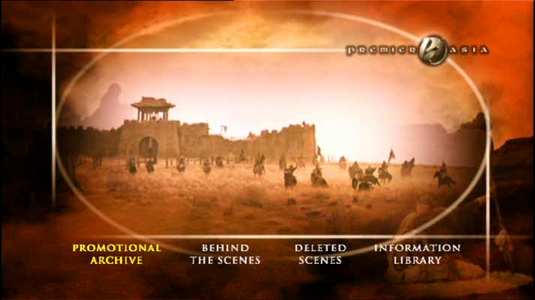
Audio
The dubbed 5.1 track, whilst not awful, totally takes the viewer out of the subtleties of the film and should be viewed only for the sake of curiosity. The Korean 5.1 subtitled track is excellent and the DTS spectacular.
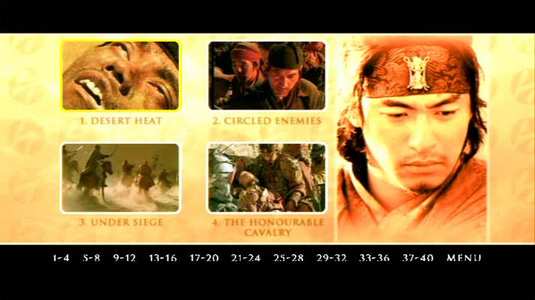
Features
Cheesy, overblown and slightly tacky menus don’t bode well for this intimidating 2-disc set, but the reality is an excellent body of bonus material: in one of the many documentaries charting various aspects of the production, the film’s action director (Far East film vernacular for an action coordinator) Jung Doo-Hong expresses regrets about the frenetic editing that spoils some of his more detailed choreography. There’s plenty of bittersweet anecdotes (one actor talks of his guilt of indirectly killing his favourite horse), cast/crew singalongs and other such frivolities mixed with pointed revelations.
Premier Asia and Hong Kong Legends titles tend to suffer in the extras department from inconsistent content due to the ex post facto nature of their development, since a lot of the films’ collaborators have moved onto other projects, it seemingly proves difficult to re-assemble them for the DVD extras. Whilst this occurs in ‘The Warrior’, the gaps are taped over nicely; there’s 2 and a half hours worth of extras on the second disc, a solid interview with Yu Rong-kwong, a brief overview of the film’s score (with nice film clips of isolated soundtrack). Along with outtakes and behind-the-scenes footage there are a few featurettes, about design, action and costume that regurgitate a lot of the same information found in the excellent central documentary; but 25 minutes of deleted scenes offer a lot of character moments that humanize the ensemble cast.
The weak spot is the commentary, instead of getting the director confessing to his Napolean complex or the actors bestowing the perils of desert filming, we get glorified fan-boys Bey Logan and Mike Leeder verbally wandering on endless tangents about their favourite films and movie stars, rarely speaking about the events on screen. That said, there are some interesting discussions about Korean cinema and an overview of the history surrounding the film, and their conversations have a friendly, convivial atmosphere. Ultimately however, all the unencumbered reverence and wandering focus doesn’t make up for a commentary from the filmmakers themselves from what was clearly an arduous production.
The animated photo gallery is bunk, obviously, but overall this is a dazzling commitment to detail from the Premier Asia team. And one of those discs that help sway the viewer to like the film more.
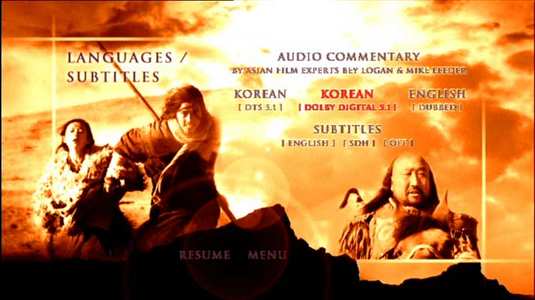
Conclusion
Bey Logan informs us in the commentary track that the rarified interest for Far East cinema spurred on by ‘Crouching Tiger, Hidden Dragon’, turned against ‘The Warrior’ as it mis-marketed the film’s more downbeat, grimly realist heroics. There’s some truth to Logan’s convictions, as ‘The Warrior’ is more ‘Battleground’ than ‘Iron Monkey’, the intention of its action more about conveying the harrowing fervour of battle rather than sating the viewer’s blood-lust for gruesome, balletic spectacle. Indeed, at first glance, this torpid, languidly plotted, melodramatic picture appears to offer little to recommend it. Clearly straining for the subdued nobility of Lean, Leone and Kurosawa, ‘The Warrior’ ends up as another mirthless bloodbath, a Ming ‘Saving Private Ryan’ in the ‘Gladiator’ sandpit.
There’s the usual vaguely misogynistic inciting incident common of war films: the allure of a woman sending all men into an irrational, lascivious tizzy leading to the action scenes, intense and bloody skirmishes, beautifully squalid with their gorgeous location panoramas gashed with crimson fumes. But they begin to feel repetitive and impersonal, and a mark of the film’s vague, distant characterizations and monotonous narrative. There’s a hermetic, closed-off quality to the narrative (aping, again, the American WWII ‘men on a mission’ movies) that, with its coarse monochromatic visuals and desolate landscape, starts to mimic the filmmakers’ barren imagination.
So strange then, that repeated viewings unveil a committed old-school war-picture, believable both in the unflinching savagery of the violence and in the subdued, poignantly understated relationships between the characters. The battle-scenes particularly seem to morph into the film’s bleak trajectory of futile dignity: they are vivid, tumultuous scenes, each distinct, markedly Far Eastern in their lustful, preternatural engagement of the grotesqueries of masculine combat: the soul-searing tear in the slitting of a throat, the pervasively caustic image of soldiers relentlessly impaled by brittle arrows. It is hand-to-hand combat that provides the honesty of the adrenalised participant and the detachment of an abhorred viewer.
Also, there’s an impressive moral ambivalence expressed by the characters: leading man Jung Woo-sung, playing the spear-flailing nomad Yeo-Sol, is no pinnacle of moral courage. And Yu Rong-kwong as the film’s chief villain, displays considerable complexity and human dignity in an otherwise pale and underwritten role. Best of all though is Joo Jin-Mo’s General Choi, the actor perfectly capturing the young leader’s quivering hold over his authority, his need to hold poise as his heart is in turmoil. His path indeed, adds a coming-of-age tale to ‘The Warrior’s melancholic arc.
Whilst the film is undeniably infested with the pompous battle-weary philosophies of its progenitors, complete with tepid, memorializing dialogue, ‘The Warrior’ gradually develops its own desolate, yearning soul. An acquired taste anti-war-movie fans would do well to acquire.
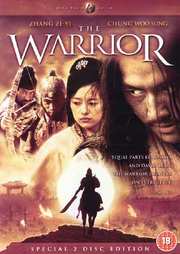
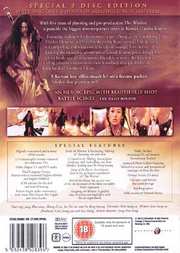





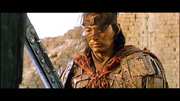
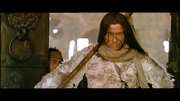
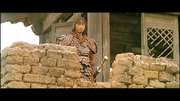
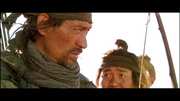
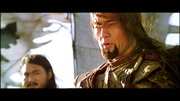
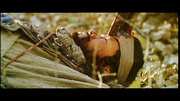
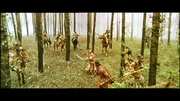
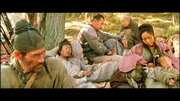
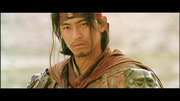
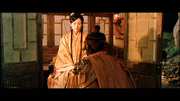
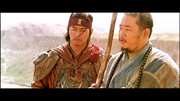
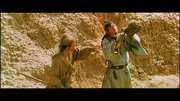
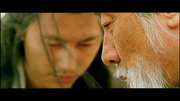
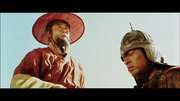
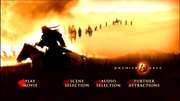
































Your Opinions and Comments
Be the first to post a comment!